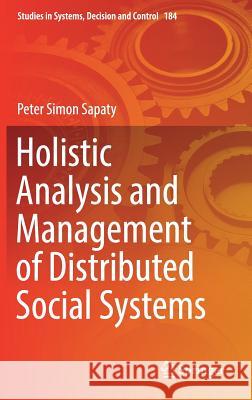Holistic Analysis and Management of Distributed Social Systems » książka
topmenu
Holistic Analysis and Management of Distributed Social Systems
ISBN-13: 9783030018290 / Angielski / Twarda / 2018 / 234 str.
Kategorie:
Kategorie BISAC:
Wydawca:
Springer
Seria wydawnicza:
Język:
Angielski
ISBN-13:
9783030018290
Rok wydania:
2018
Wydanie:
2019
Ilość stron:
234
Waga:
0.53 kg
Wymiary:
23.39 x 15.6 x 1.6
Oprawa:
Twarda
Wolumenów:
01
Dodatkowe informacje:
Wydanie ilustrowane











